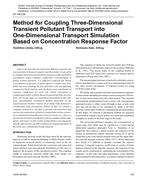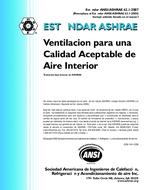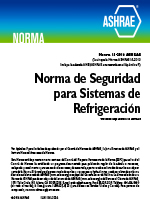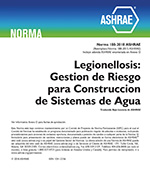Description
Due to the fact that the advection-diffusion equation for concentration is linear for steady-state flow fields, it is possible to compute transient concentration responses with convolution calculations using response coefficients corresponding to pulses of finite duration. It is difficult to analytically obtain concentration responses to pulse inputs in steady-state flow fields, however, dividing the flow field into cells and applying a numerical fluid analysis code facilitates easy calculation of response coefficients for each cell, which correspond to contaminant pulses of finite duration generated from an arbitrary cell. In this study we establish a formulation of the transient concentration calculation method, patterned on the response factor method, which is used widely in the field of airconditioning load calculations. Based on this, we created a computer program to calculate transient concentrations and carried out simulations of indoor contaminant release scenarios resulting from hypothetical terrorist actions, etc. Here we present the calculation method as well as examples of the simulation, and report on the results of quantitative investigations into the effectiveness of 100% outdoor air supply operation in the event of a contaminant being released.
Units: SI
Citation: ASHRAE Transactions, vol. 114, pt. 1, New York 2008
Product Details
- Published:
- 2008
- Number of Pages:
- 14
- File Size:
- 1 file , 6.3 MB
- Product Code(s):
- D-NY-08-032




